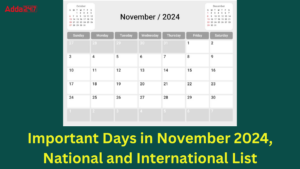Table of Contents
Eid-al-Fitr
Eid al-Fitr, also known as the Festival of Breaking the Fast, is one of the most important religious festivals celebrated by Muslims worldwide. It marks the end of Ramadan, the Islamic holy month of fasting., during which Muslims fast from dawn to sunset. Eid al-Fitr is a time of joy and celebration, as Muslims gather together with their families and friends to share meals and exchange gifts. It is also a time of reflection and gratitude, as Muslims reflect on the blessings they have received during the month of Ramadan and give thanks to Allah for his mercy and guidance. Eid-al-Fitr is also a time for forgiveness, reconciliation, and strengthening of bonds within the community. Traditional sweets and desserts are often shared among family and friends, adding to the festive atmosphere.
Significance of Chand Raat
Chand Raat is a significant cultural event that takes place on the night before the Islamic festival of Eid al-Fitr, which marks the end of the holy month of Ramadan. The term “Chand Raat” translates to “Night of the Moon,” which refers to the sighting of the new crescent moon that signals the end of Ramadan and the beginning of Eid. The celebrations of Eid al-Fitr usually start with the sighting of the new moon, which marks the end of Ramadan.
How is Eid al-Fitr Celebrated?
Eid al-Fitr is one of the most important festivals in the Islamic calendar, which marks the end of the holy month of Ramadan. The celebration of Eid al-Fitr varies from country to country, but it typically involves the following traditions:
- Prayer: Muslims gather in mosques or large open areas to offer Eid prayers in congregation.
- Charity: It is customary for Muslims to give Zakat al-Fitr, which is a form of charity given before the Eid prayer. This is usually in the form of food or money, and it is given to the poor and needy.
- New Cloths and Decorations: It is customary for Muslims to wear new or best clothes for Eid-al-Fitr. Homes and mosques are often decorated with lights, banners, and colorful decorations to mark the joyous occasion.
- Family gatherings: Eid is a time for families and friends to come together and celebrate. People often dress in their best clothes, and families prepare special dishes for the occasion.
- Festivities: Many Muslims celebrate Eid al-Fitr by decorating their homes with lights and lanterns, and by exchanging gifts with friends and family.
- Food: Eid al-Fitr is a time for feasting and enjoying special dishes. Traditional Eid foods vary from country to country, but they often include sweet dishes such as vermicelli pudding, dates, etc.
In a nutshell, Eid al-Fitr is a joyous occasion that celebrates the end of Ramadan and the spiritual journey of fasting and self-discipline. It is a time for Muslims to express gratitude, seek forgiveness, and share their blessings with others.



 Important Days in December 2024, Check C...
Important Days in December 2024, Check C...
 Important Days and Dates 2024, National ...
Important Days and Dates 2024, National ...
 Important Days in November 2024, Nationa...
Important Days in November 2024, Nationa...


